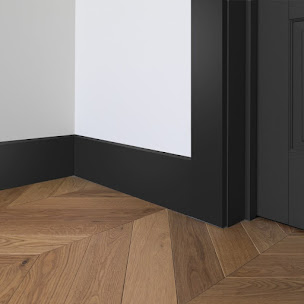Choosing Eco-Friendly Deck Tile Materials
Selecting the right material for a new decking installation is essential to guaranteeing its drawn out use and visual engaging quality. This article explores numerous common Decking Tiles choices, each with unique advantages and recommended utilizes.
Select Surfaces deck tiles expect practically no consideration and are even impervious to form and mold. A simple and fashionable method for refreshing any outdoor space is with these unquestionably solid and user-friendly outdoor deck tiles.
Composite flooring is the greenest decision for various reasons, yet like any material, it additionally has a few minor downsides. By and by, the advantages offset the disadvantages, and introducing a composite deck might be one method for guaranteeing that the environment is around for a longer time frame.
Deck Materials Matter
Materials for deck development should be impervious to openness to climate, bugs, and different perils. Because of their solidarity and innate protection from rot, cedar and pecan have been popular choices; regardless, these trees are habitually taken from compromised timberlands. Deck manufacturers can choose between utilizing wood that is great for backwoods or reused plastic timber to diminish their adverse consequences on the environment.
Ipe Decking
Ipe decking holds the title of the longest-enduring deck material. Ipe is famous for its unprecedented versatility to decay and life span, with great consideration stretching out its life expectancy to a dumbfounding 75 years. It is impervious to rot, insects, and even fire as a result of its strong design and natural oils. Ipe is a famous material for top of the line decks as a result of its profound earthy colored tone as well as its fine grain, which gives it a rich and exemplary appearance.
Timber Decking
Any outdoor space is enhanced by the exemplary style and warmth of timber Composite Decking Tiles. Ideal for individuals who are ready to invest a few upkeep energy and value authenticity. Hardwoods and softwoods are both adequate kinds of wood for decking. A portion of the elements that determine how long regular wood materials endure are the kind of wood used, the environment, and how much support required.
Natural Wood
Whether it's tropical hardwoods, redwood, or cedar, numerous homeowners choose to have their decks made of natural wood. These tough materials endure rot and insects while keeping a classically beautiful perspective and rich tone. In any case, having such appealing traits has a financial and physical expense.
Plastic Decking
These decks creak as you stroll on them, yet they likewise incorporate perplexing securing mechanisms that permit the sections to move in light of temperature fluctuations. PVC decking is much of the time more expensive than composite decking, however this relies upon the material's quality and plan.
Pressure-treated Wood
Taking everything into account, pressure-treated wood is among the most reasonable choices for Interlocking Deck Tiles. Southern yellow pine is synthetically treated by makers to solidify it and increment its protection from dampness and insects. Despite the fact that this wood is modest, it needs ordinary upkeep to keep it at its ideal, for example, pressure washing and applying layers of color and sealer.
Environmental Impact
Eco-friendly materials are oftentimes produced using reused and unrefined components that come from practical woodlands, among different sources. Certain items, similar to composite decking, join reused plastic and wood strands to give an eye-getting, enduring decking material that keeps plastic out of landfills.




Comments
Post a Comment